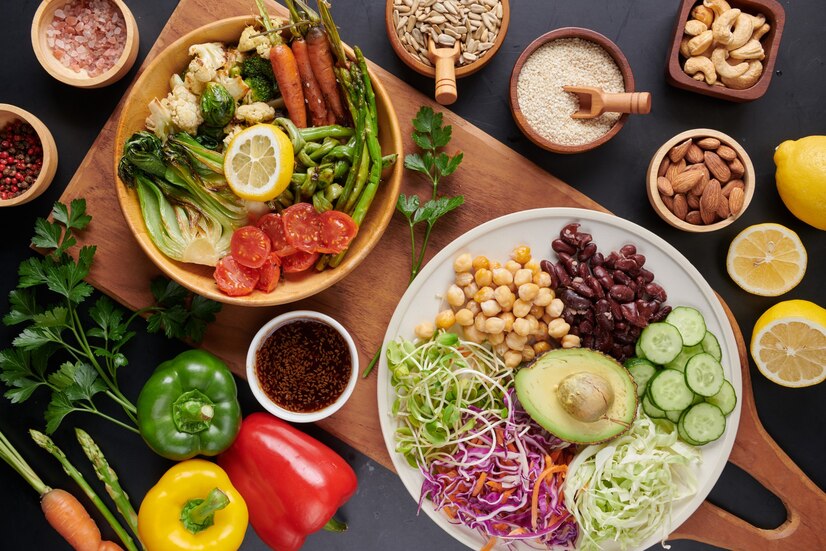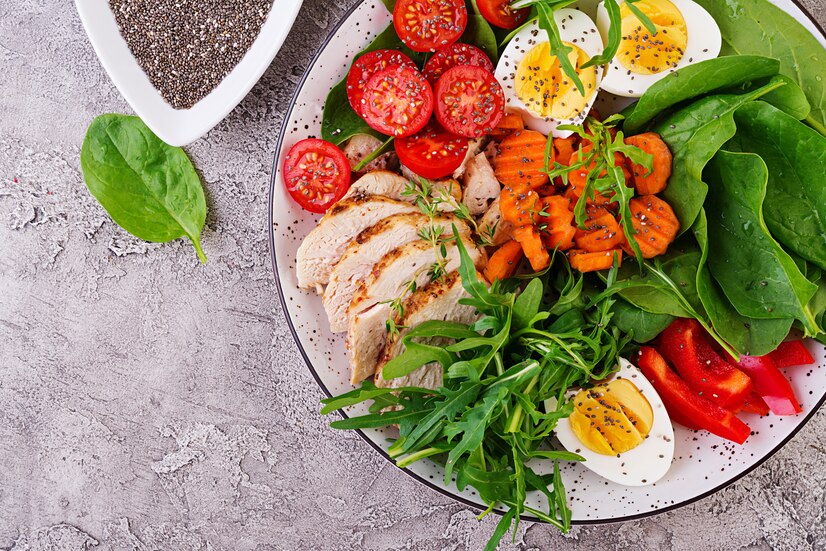Table of contents
Discover the Synergy Between Cannabidiol and Nutrient-Rich Diets
As wellness trends continue to evolve, more people are discovering the potential benefits of combining CBD and healthy eating. While CBD (cannabidiol) has gained popularity for its ability to promote relaxation, reduce inflammation, and support overall well-being, integrating it into a nutrient-rich diet may amplify its effects. In this blog post, we’ll explore how CBD and healthy eating work hand-in-hand, how to incorporate CBD into your meals, and what science says about this powerful combination.
What is CBD?
CBD is a non-psychoactive compound found in hemp and cannabis plants. It interacts with the body’s endocannabinoid system (ECS), which plays a crucial role in regulating sleep, mood, appetite, immune response, and pain sensation. By promoting balance in the ECS, CBD may support a variety of bodily functions—many of which are also influenced by diet.
How CBD and Healthy Eating Work Together

Combining CBD and healthy eating can be a smart, holistic approach to wellness. Here’s how they complement each other:
1. Improved Digestion and Gut Health
CBD has anti-inflammatory properties that may help calm the digestive system. When paired with high-fiber foods, probiotics, and healthy fats, CBD may support a more balanced gut microbiome and reduce symptoms of bloating, cramping, or indigestion.
2. Enhanced Nutrient Absorption
CBD is fat-soluble, meaning it’s better absorbed when consumed with dietary fats like avocado, nuts, or olive oil. Including these fats in your diet not only supports CBD absorption but also boosts intake of essential nutrients like omega-3s and vitamins A, D, E, and K.
3. Appetite Regulation
For those who struggle with poor appetite or emotional eating, CBD may offer support. It helps balance hormones like cortisol and insulin, which can regulate hunger and satiety cues. Combined with a mindful, nutrient-dense diet, this can promote healthier eating habits.
4. Anti-Inflammatory Effects
Both CBD and healthy foods like leafy greens, berries, and fatty fish have anti-inflammatory properties. This combination can be particularly helpful for those managing chronic pain, autoimmune conditions, or general inflammation.
5. Mood and Energy Boost
A balanced diet full of whole foods fuels the brain and body, while CBD helps regulate serotonin and dopamine levels. Together, they can reduce brain fog, lift mood, and improve energy—making it easier to maintain a consistent wellness routine.
Creative Ways to Combine CBD and Healthy Eating

🥗 CBD Salad Dressings
Add a few drops of CBD oil to your homemade vinaigrettes or creamy dressings for a simple, tasty infusion.
🥣 Smoothie Boosters
Blend CBD oil or tincture into your morning smoothie alongside greens, berries, protein powder, and healthy fats.
🍲 CBD Soups and Stews
Infuse CBD oil into warm, hearty dishes like lentil soup or bone broth—but be cautious with high heat, which may degrade CBD’s potency.
🧁 Healthy CBD Snacks
Create your own energy bites, protein bars, or granola that include a low dose of CBD oil for a wellness boost throughout the day.
🍵 CBD Teas and Tonics
Combine CBD with herbal teas, turmeric lattes, or matcha for a calming beverage packed with antioxidants and adaptogens.
Choosing the Right CBD Products
To maximize the synergy between CBD and healthy eating, choose food-grade, high-quality CBD products:
- Full-Spectrum CBD Oil: Contains beneficial cannabinoids and terpenes for an enhanced effect.
- Broad-Spectrum CBD: Offers many of the same benefits without THC.
- CBD Isolate: Pure CBD—ideal for precise dosing and cooking.
Always check for third-party lab testing, organic certification, and clear dosage instructions.
Frequently Asked Questions (FAQs)
Yes, but avoid high heat (over 320°F/160°C), which can degrade the CBD. Use it in low-heat recipes or as a finishing oil.
For most people, yes. Daily CBD use can support consistent ECS balance. However, always start with a low dose and consult a healthcare provider.
CBD may help regulate appetite by balancing hormones like cortisol. It’s not an appetite stimulant like THC, so it won’t give you “the munchies.”
Generally, yes—but check with your doctor if you’re taking prescription medications or supplements with known interactions.
Start with 5–10mg per serving and adjust based on how your body responds. Look for products with precise serving sizes for better control.
Final Thoughts
CBD and healthy eating don’t just coexist—they enhance each other. Whether you’re looking to reduce inflammation, balance your mood, or simply make your meals more mindful, integrating CBD into your dietary routine can be a game-changer. Remember, consistency is key, and quality matters—so choose reputable CBD brands and nourish your body with whole, unprocessed foods. Together, they create a wellness foundation that supports body, mind, and soul.





